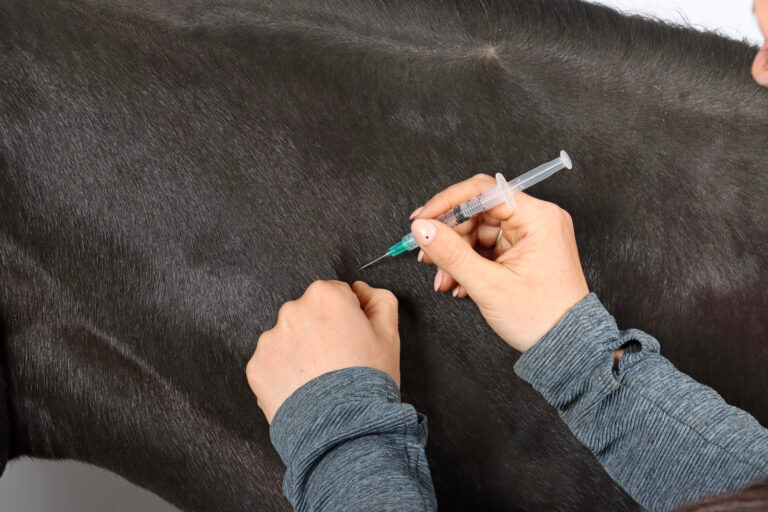
According to a press release from the New Jersey Department of Agriculture, an approximately 12-year-old mare in Ocean County became the first 2019 case of Eastern equine encephalitis (EEE) in New Jersey this year. The mare mare was reported to have been vaccinated against EEE in April 2019. She was euthanized on July 23.
“Horse owners need to be vigilant in vaccinating their animals against diseases spread by mosquitoes,” New Jersey Secretary of Agriculture Douglas H. Fisher said. “Vaccinated animals are much less likely to contract deadly diseases such as EEE and West Nile Virus.”
EEE causes inflammation of the brain tissue and has a significantly higher risk of death in horses compared to infection with West Nile virus.
West Nile virus is a viral disease that affects horses’ neurological system, noted the NJ Department of Ag. The disease is transmitted by a mosquito bite. The virus cycles between birds and mosquitoes with horses and humans being incidental hosts.
EEE infections in horses are not a significant risk factor for human infection because horses (like humans) are considered to be “dead-end” hosts for the virus. In 2018, New Jersey had five cases of EEE and one case of West Nile virus (WNV). Effective equine vaccines for EEE and WNV are available commercially. Horse owners should contact their veterinarians if their horses are not already up-to-date on their vaccinations against both EEE and WNV.
For more information about EEE in horses, visit the New Jersey Department of Agriculture web site.
EEE and West Nile virus, like other viral diseases the affecting horse’s neurological system, must be reported to the state veterinarian at 609-671-6400 within 48 hours of diagnosis. The New Jersey Animal Health Diagnostic Laboratory is available to assist with EEE and WNV testing and can be reached at 609-406-6999 or email jerseyvetlab@ag.state.nj.us.




